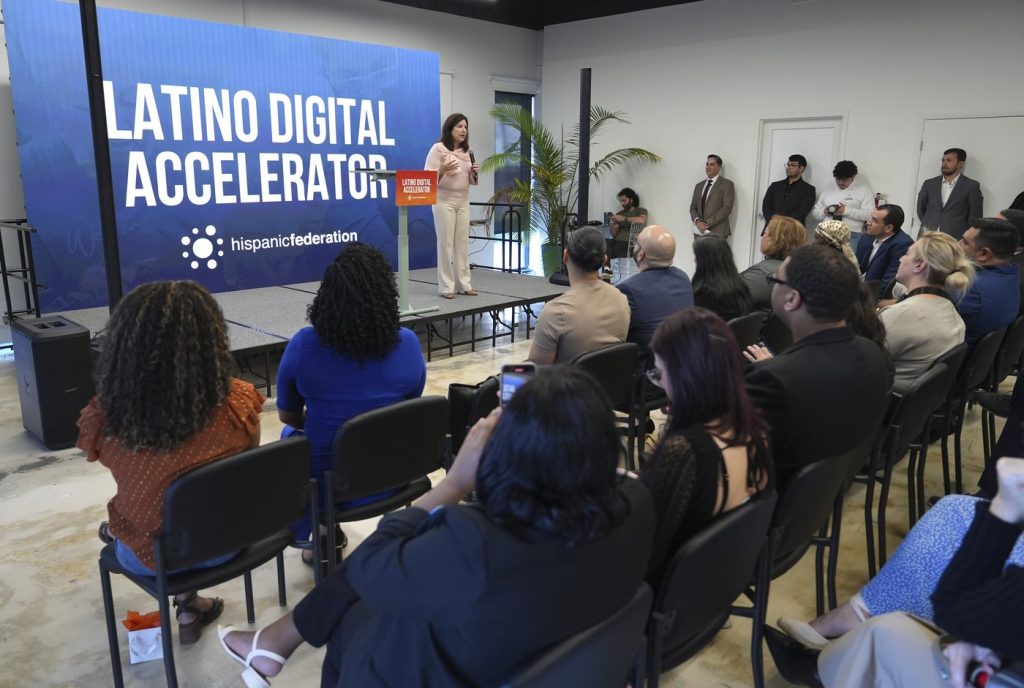The increasing reliance on technology within various job sectors poses significant challenges for many Latino workers, particularly those lacking digital skills and access to technology. According to researchers at the University of California, Los Angeles (UCLA), Latinos are predominantly employed in sectors such as agriculture, construction, retail, and food services—areas highly susceptible to automation. The situation is exacerbated by the existing barriers faced by Latino workers, which include limited English proficiency, reduced digital access, and educational gaps.
Misael Galdámez, co-author of the UCLA report titled "On the Frontlines: Automation Risks for Latino Workers in California,” emphasizes that automation is not solely a technological concern but an equity issue. He notes that Latino workers are at the forefront of automation risks, facing daunting challenges that could hinder their economic mobility.
The report highlights individual narratives, such as that of Valerie Gills, who worked as a hotel receptionist in Phoenix for three years. In 2023, her job was made redundant due to the introduction of self-check kiosks and AI-powered chatbots. Gills expressed her concerns, stating that while businesses are striving for efficiency, such advancements take away job opportunities from workers like her. After losing her job, she found only temporary positions, which took a toll on her mental health and increased her realization of the vulnerabilities faced by workers amid automation.
Advocates like Ramiro Cavazos, president and CEO of the United States Hispanic Chamber of Commerce, acknowledge that while automation may displace low-skilled jobs, it could also pave the way for new roles and improved working conditions. Cavazos asserts that the lack of internet access significantly affects Latino workers, who traditionally encounter such challenges. However, progress in education and skill development within the Latino community is evident.
As Gills searched for new opportunities, she recognized the necessity of acquiring new skills to keep up with evolving job market demands. Ultimately, she secured an internship as a blog editor and is actively exploring tech-study programs in data analytics and software development to enhance her competitiveness in the job market.
The Hispanic Chamber collaborates with over 500 foundations to ensure corporations contribute to training initiatives aimed at equipping Latino workers with essential skills. This collaboration aims to address the significant skill gaps that could hinder economic progression among Latinos. During the Biden administration, the U.S. Department of Labor prioritized apprenticeship programs designed to provide Latinos with pathways to high-paying careers, a crucial opportunity for workers needing to adapt to new job landscapes.
Apprenticeships, highlighted by Carlos Vasquez, founder of Miami Ed Tech, are particularly beneficial for Latinos, as they offer paid training from the start and promise skill development. Miami Ed Tech currently offers apprenticeships in AI, data science, and web design, illustrating efforts to broaden opportunities beyond traditional trades.
Historically, Latinos have always been impacted by automation, particularly in labor-intensive roles. A recent UCLA study revealed that 2.3 million Latinos in California are employed in jobs most at risk of automation, with a concerning 21% of them lacking access to high-speed internet, a significant barrier to digital skills development. A 2021 Pew Research study further indicated that only 67% of Hispanic adults own a desktop or laptop computer, compared to 80% of white adults.
Organizations like the Hispanic Federation are making strides to address the digital divide by offering training and access to technology for Latinos. Diana Caba, vice president for community and economic development at the Hispanic Federation, reported that among the 35,000 individuals they have trained, 70% completed their courses, with thousands subsequently securing new jobs and six-figure salaries.
Dylan Pravia, a participant in the Miami Ed Tech program, reflects on the training he received, which has helped him pursue mechanical engineering. He advocates for expanding such opportunities, recognizing the potential talent within the Latino community.
While Gills acknowledges the inevitability of technological progress, she remains wary of its implications for low-skilled workers. She calls for better support systems to assist in retraining workers as industries transition to automation and AI. As she faces the evolving job landscape, Gills understands that adapting to these changes is paramount for survival in a rapidly changing economy.










